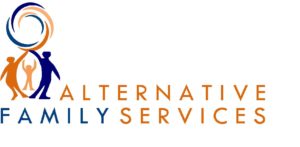Kinship Placement vs Foster Care: Understanding the Differences and Benefits
Are you curious about the distinction between kinship placement and traditional foster care? Both play vital roles in the child welfare system but differ in several key aspects. Let’s explore these differences and discuss why kinship care is increasingly seen as a beneficial option for children in need.

Are you curious about the distinction between kinship placement and traditional foster care? Both play vital roles in the child welfare system but differ in several key aspects. Let’s explore these differences and discuss why kinship care is increasingly seen as a beneficial option for children in need.
Kinship Care Explained
Kinship care refers to the care for the child or children by family members (who are not their biological parents) or close family friends, sometimes known as “non-relative extended family members (NREFMs).”
Unlike traditional foster care, where children are placed with state-certified caregivers who are usually strangers, kinship caregivers are familiar to the youth entering care, including aunts, uncles, cousins, and grandfamilies (a term we covered in this blog post).
According to the Child Welfare Information Gateway, kinship care is also inclusive of fictive kin, or individuals known to the family (such as friends, co-workers or neighbors). The State of California Department of Social Services officially refers to fictive kin as “nonrelative extended family members (NREFMs).”
According to The Annie E. Casey Foundation, “There are three general and sometimes overlapping categories of kinship care. These categories are:
- Private or Informal Care: Arrangements are made privately by families with or without legal recognition of a caregiver’s status.
- Diversion Kinship Care: Occurs when child welfare agencies place children or teens with a relative or close friend to prevent entering the formal foster care system.
- Licensed of Unlicensed Kinship Care: Involves children living with relatives but under the state’s legal custody, which may or may not require the caregiver to obtain formal licensure.
Benefits of Placing Foster Children in Kinship Placements
The shift towards kinship placement by child welfare and foster family agencies reflects a growing recognition of their advantages of placing foster youth in the home of someone they know (i.e. a kinship placement).
In fact, the California Department of Social Services mandates, “[i]f a child is removed from the care of his or her parent(s), the social worker must conduct, within 30 days, an investigation to identify and locate all grandparents, parents of a sibling of the child (if the parent has legal custody of the sibling), adult siblings, and other adult relatives of the child, including any other adult relatives suggested by the parents. Counties must provide all identified relatives with written and oral notification unless notification is inappropriate due to the relative’s history of family or domestic violence.”
As the Child Welfare Information Gateway has noted, “Prioritizing the placement of children and youth with kin can help transform the child welfare system into one that truly supports families. Supporting kin caregivers by using family engagement strategies and providing culturally appropriate training, services, and equitable supports can positively impact stability and permanency outcomes for children, youth, and families.”
A child welfare system that prioritizes family connections and stability offers several benefits:
- Familiar Relationships: Children and teens experience less trauma and anxiety with placed with someone they know and trust.
- Cultural Continuity: Keeping youth within their family circles preserves their cultural identity and values.
- Enhanced Stability: Kinship care often results in more stable placements and fewer moves within the foster care system.
- Emotional Support: The pre-existing emotional bonds with kin caregivers can provide stronger support networks for the child’s developmental needs.
The Growing Trend of Kinship Care
Nationally, kinship care is on the rise, with approximately 2.5 million youth living in such arrangements. According to the Annie E. Casey Foundation, this represents around 3% of all youth in the United States.
Here at AFS, we strongly advocate for kinship placements whenever feasible. Our commitment is reflected in our core values statement, which recognizes that children and teens thrive best within a nurturing family environment supported by positive interactions within and with the wider community.
As we continue to navigate the complexities of child welfare, it’s clear that kinship care offers a compassionate alternative to traditional foster care, providing essential stability and continuity for children during challenging times. We remain dedicated to supporting our kinship families with the resources and guidance necessary to nurture and prosper.
